翻訳文の前に記した
僕の
前置きにつき、
訂正します(2012年11月23日)。
この記事を
11月22日に投稿したとき、
次のように述べました、
「2009年8月26日に
鳩山由紀夫氏が
ニューヨーク・タイムズに寄稿されていたようです。
ツイッタ―で知りました。
ご自身は出馬しないことにされ、
後進に希望をつなぎたい
という趣旨からでしょうか。
昔の自分の
論稿を公にされました」と。
でも、これ、完全に誤解なようです。
きっこさんという方が、
次のような発言をなさっています。
すなわち、鳩山氏の論稿は、
月刊誌「Voice」の9月号に寄稿したもの。
かつて「ニューヨークタイムズ紙」が
それに手を加え、
「反『新政権』感情を煽るような」
ものに加工した上、
09年8月27日付で発表した、と(「きっこのブログ」参照/リンク)。
それが
今になって、
また話題になった
(僕が応じた)わけです――。
反「新政権」感情を煽っているかどうかは、
別にして、
日本人を差し置いて、論戦のために書いた
寄稿文でなかった!!――のに、
英文を付したがために転載に至る
という経緯に驚きました。
とすると、
立論の出発点が異なってきます。
「『なぜ、この時期に?』かと言うと、
今でなかったら、
伝わらないものがあるからだ」
と思いました。
「マスコミが
彼の主張を歪めていたところがあり、
選挙が終わってからでは、
もう誰も耳を傾けないでしょう。
切羽詰まった心境で
情報をリークされたのだと思います」
という感想は、
以上の理由により撤回します。
ただ、アメリカ人が、
民主党政権をどう理解していたか
その材料になる
英文記事として貴重な記録ですので、
資料として残します。
さて、
翻訳文は、
最初にアップしたままです。
典拠は、
「ブログ:JIROの独断的日記ココログ版」(リンク)です。
変更は加えてません。
<資料>
(NY・Times Hatoyama論稿原文/リンク参照)
「A New Path for Japan」
「日本の新しい道」
By YUKIO HATOYAMA 鳩山由紀夫
Published: August 26, 2009
TOKYO — In the post-Cold War period, Japan has been continually buffeted by the winds of market fundamentalism in a U.S.-led movement that is more usually called globalization. In the fundamentalist pursuit of capitalism people are treated not as an end but as a means. Consequently, human dignity is lost.
戦後、所謂冷戦時代においては、日本は常アメリカが主導する市場原理主義(今では「グローバリゼーション」と称するのが一般的だが)に揺すぶられてきた。市場原理主義者達が追及した資本主義社会において、人間は「目的」ではなく、「手段」として扱われた。結果的に人間の尊厳が失われた。
How can we put an end to unrestrained market fundamentalism and financial capitalism, that are void of morals or moderation, in order to protect the finances and livelihoods of our citizens? That is the issue we are now facing.
今や抑制の効かない、モラルや中庸さが欠落する市場原理主義、金融資本主義経済において、如何にすれば、我々は人間を「目的」の地位に戻す、即ち国民の財産や生活を守ることができるのであろうか?それが現在、我々が直面する問題である。
In these times, we must return to the idea of fraternity — as in the French slogan “liberté, égalité, fraternité” — as a force for moderating the danger inherent within freedom.
今こそ、我々はフランス革命のスローガン「自由・平等・博愛」の精神、「友愛」の精神に回帰すべきである。それは自由主義に付随する危険を緩和する為に有効である。
Fraternity as I mean it can be described as a principle that aims to adjust to the excesses of the current globalized brand of capitalism and accommodate the local economic practices that have been fostered through our traditions.
友愛の精神は、行き過ぎた、現在のグローバルな資本主義を伝統的に育まれてきた、ローカルな経済活動に適合するよう調整する為の原則と言って良い。
The recent economic crisis resulted from a way of thinking based on the idea that American-style free-market economics represents a universal and ideal economic order, and that all countries should modify the traditions and regulations governing their economies in line with global (or rather American) standards.
最近の経済危機は、アメリカスタイルの自由市場経済こそ理想的、普遍的な経済体制であり、世界中の国や地域が「アメリカ式」を世界標準として、自分達の経済体制を「アメリカ式」に合うように修正するべきだ、という思想がもたらしたものだ。
In Japan, opinion was divided on how far the trend toward globalization should go. Some advocated the active embrace of globalism and leaving everything up to the dictates of the market. Others favored a more reticent approach, believing that efforts should be made to expand the social safety net and protect our traditional economic activities. Since the administration of Prime Minister Junichiro Koizumi (2001-2006), the Liberal Democratic Party has stressed the former, while we in the Democratic Party of Japan have tended toward the latter position.
日本では、これに対して意見が分かれた。ある人々はグローバリズムの信奉者となり、全てをマーケットに委ねれば万事上手くゆくと力説した。一方、もっと穏やかなアプローチが好ましいと考え、セーフティネットを拡大し、我々の伝統的な経済のあり方を守るために努力するべきだ、と主張する人々がいた。
小泉純一郎政権(2001年~2006年)以来、自民党は前者、我々民主党は、後者だった。
The economic order in any country is built up over long years and reflects the influence of traditions, habits and national lifestyles. But globalism has progressed without any regard for non-economic values, or for environmental issues or problems of resource restriction.
如何なる国でも、その国の経済秩序は、長い年月を経て、その社会の伝統的なライフスタイルや社会的慣習の影響を反映して醸成され、成り立っている。しかし、グローバリズムは、経済に直接結びつかない価値観、環境的な要素、それぞれの国が持つ資源的制約などを完全に無視して突き進んだ。
If we look back on the changes in Japanese society since the end of the Cold War, I believe it is no exaggeration to say that the global economy has damaged traditional economic activities and destroyed local communities.
冷戦構造終焉後の日本社会の変化を振り返ると、グローバリズムが、伝統的な経済活動、地域社会を破壊し続けた、と言っても過言ではない、と私は考えている。
In terms of market theory, people are simply personnel expenses. But in the real world people support the fabric of the local community and are the physical embodiment of its lifestyle, traditions and culture. An individual gains respect as a person by acquiring a job and a role within the local community and being able to maintain his family’s livelihood.
市場理論において、人間は単なる「人件費」として見なされる。しかし、現実の社会では、人間が地域社会構造を支え、生活様式、伝統、文化を具現化する主体である。個人はそれぞれの地域社会での労働を経て、各々の職務を遂行し、家族の生活を支えるが故に、尊敬されるのである。
Under the principle of fraternity, we would not implement policies that leave areas relating to human lives and safety — such as agriculture, the environment and medicine — to the mercy of globalism.
友愛を行動原則に据えることにより、我々はグローバリズムの犠牲となった、農業、環境、医療など、人々の生命と安全に関わるような分野、を見捨てるような政治を行うことは不可能となる。
Our responsibility as politicians is to refocus our attention on those non-economic values that have been thrown aside by the march of globalism. We must work on policies that regenerate the ties that bring people together, that take greater account of nature and the environment, that rebuild welfare and medical systems, that provide better education and child-rearing support, and that address wealth disparities.
政治家として、我々には、このような、グローバリズムで見捨てられた「非経済的な価値」に再度光を当てる責任がある。我々は、人と人との絆を再び強め、自然や環境をより重視し、社会福祉や医療制度を再構築し、よりよい教育環境を整え、子育てを支援し、経済的格差を是正するような政策を取らねばならない。
Another national goal that emerges from the concept of fraternity is the creation of an East Asian community. Of course, the Japan-U.S. security pact will continue to be the cornerstone of Japanese diplomatic policy.
友愛の精神から生ずる、もう一つの我が国の目標は、東アジア諸国のコミュニティを構築することである。勿論、日米安全保障条約は日本国の外国政策の要(かなめ)であり続けることは間違いない。
But at the same time, we must not forget our identity as a nation located in Asia. I believe that the East Asian region, which is showing increasing vitality, must be recognized as Japan’s basic sphere of being. So we must continue to build frameworks for stable economic cooperation and security across the region.
しかし、同時に、我々はアジアに於ける一国家である、というアイデンティティを忘れてはならないのである。加速度的に活気づく東アジアこそ、日本の存在の基礎として認識されるべきなのだ。従って、我々は、アジアにおける安定した経済協力やこの地域の安全保障に関しての枠組みを構築し続ける必要がある。
The financial crisis has suggested to many that the era of U.S. unilateralism may come to an end. It has also raised doubts about the permanence of the dollar as the key global currency.
今回の金融危機は、多くの人々に米国の一国主義時代の終焉を、感じさせ、米ドルの基軸通貨としての恒久性にも疑問が生じた。
I also feel that as a result of the failure of the Iraq war and the financial crisis, the era of U.S.-led globalism is coming to an end and that we are moving toward an era of multipolarity. But at present no one country is ready to replace the United States as the dominant country. Nor is there a currency ready to replace the dollar as the world’s key currency. Although the influence of the U.S. is declining, it will remain the world’s leading military and economic power for the next two to three decades.
私は、更に、イラク戦争の失敗や、金融危機を見るにつれ、米国主導型のグローバリズムが最早、終わりに近づいており、国際社会は多極化の時代に向かいつつある、と感じる。現時点では、アメリカにとってかわり、世界を支配できる国家は他に存在せず、米ドルの代わりに、世界の基軸通貨として通用する通貨も存在しない。米国の影響力は低下しつつあるが、それでもこの先20~30年は、世界最大の軍事・経済大国で有り続けるだろう。
Current developments show clearly that China will become one of the world’s leading economic nations while also continuing to expand its military power. The size of China’s economy will surpass that of Japan in the not-too-distant future.
近年、中国の台頭が顕著で、世界有数の経済大国であり、軍事力の拡大もめざましい。中国の経済規模が日本を追い越すまでに、さほど時間はかかるまい。
How should Japan maintain its political and economic independence and protect its national interest when caught between the United States, which is fighting to retain its position as the world’s dominant power, and China, which is seeking ways to become dominant?
日本は、世界の中心で有り続けようとするアメリカと、アメリカに取って代わろうと必死な中国との板挟みとなったら、如何にして政治的・経済的独立を保てばよいのだろうか。
This is a question of concern not only to Japan but also to the small and medium-sized nations in Asia. They want the military power of the U.S. to function effectively for the stability of the region but want to restrain U.S. political and economic excesses. They also want to reduce the military threat posed by our neighbor China while ensuring that China’s expanding economy develops in an orderly fashion. These are major factors accelerating regional integration.
これは、日本だけではなく、多くの小・中規模のアジア諸国も抱いている懸念である。いずれの国も、アメリカにはアジアの安全保障に関与して欲しい。しかし、政治的・経済的な「内政干渉」は、止めて貰いたい。と言うところだ。アジア中小諸国は中国な軍事力の巨大化にも脅威を感じている。しかし、中国経済は秩序正しく発展しているので市場としては、無視できない。
Today, as the supranational political and economic philosophies of Marxism and globalism have, for better or for worse, stagnated, nationalism is once again starting to have a major influence in various countries.
これらの状況がアジアの地域統合を推進する原動力となっている。今日、マルキシズムの超大国も、グローバリズムの超大国の政治的・経済的影響力はいずれも良きにつけ悪しきにつけ弱まっている。このため、色々な国でナショナリズムが復活・台頭し始めた。
As we seek to build new structures for international cooperation, we must overcome excessive nationalism and go down a path toward rule-based economic cooperation and security.
我々は 新しい国際協力の為の体制を構築したいと希望しているのであるから、過度のナショナリズム(国粋主義、民族主義)の表出は抑制するべきであり、ルールに基づいた経済・安全保障体制を作る為に協力し合うべきなのだ。
Unlike Europe, the countries of this region differ in size, development stage and political system, so economic integration cannot be achieved over the short term. However, we should nonetheless aspire to move toward regional currency integration as a natural extension of the rapid economic growth begun by Japan, followed by South Korea, Taiwan and Hong Kong, and then achieved by the Association of Southeast Asian Nations (ASEAN) and China. We must spare no effort to build the permanent security frameworks essential to underpinning currency integration.
ヨーロッパと異なり、アジアのこの地域は、それぞれ、規模も、発展段階も、政治体制も大きく異なるので、経済的な統合には時間がかかるであろう。しかし、我々はそれでも通貨統合を目指すべきである。それは、いち早く経済発展を遂げた日本と、それに続いた韓国、台湾、香港、ASEAN諸国と中国にとって、自然な流れである。そして統合通貨の基礎となる、恒久的な安全保障体制を構築する為の努力を惜しむべきではない。
Establishing a common Asian currency will likely take more than 10 years. For such a single currency to bring about political integration will surely take longer still.
アジアの通貨統一には、10年以上を要するであろう。また、政治的統合には、さらに長い時間がかかるだろう。
ASEAN, Japan, China (including Hong Kong), South Korea and Taiwan now account for one quarter of the world’s gross domestic product. The economic power of the East Asian region and the interdependent relationships within the region have grown wider and deeper. So the structures required for the formation of a regional economic bloc are already in place.
今や、ASEAN、日本、中国(香港を含む)、韓国、台湾のGDPを合計すると全世界の1/4を占める。東アジアの経済力と相互依存関係は、一層広く、かつ深くなりつつある。この地域経済ブロックを構築する前提的な状況は、既に整っているということが出来る。
On the other hand, due to historical and cultural conflicts as well as conflicting national security interests, we must recognize that there are numerous difficult political issues. The problems of increased militarization and territorial disputes cannot be resolved by bilateral negotiations between, for example, Japan and South Korea, or Japan and China. The more these problems are discussed bilaterally, the greater the risk that emotions become inflamed and nationalism intensified.
また、東アジアには、歴史的、文化的確執と相互に対立する安全保障上の利害が存在するため、解決すべき多くの政治的な課題が存在することは、認識されなければならない。また、増大しつつある軍事化と領土問題は二国間――例えば日本と韓国、又は日本と中国――の交渉で解決することは出来ない。これらの問題を二国間で解決しようとすればするほど、より一層、その二国間の感情的な対立と、それぞれのナショナリズムを刺激することになるであろう。
Therefore, I would suggest, somewhat paradoxically, that the issues that stand in the way of regional integration can only be truly resolved by moving toward greater integration. The experience of the E.U. shows us how regional integration can defuse territorial disputes.
一見逆説的だが、だからこそ、私は、これらの問題は、より大きな地域的な統合を通じてこそ解決しうる、と考えるのである。EUが成立した過程をみれば、地域的統合が領土問題を沈静化する効果があることは明らかだ。
I believe that regional integration and collective security is the path we should follow toward realizing the principles of pacifism and multilateral cooperation advocated by the Japanese Constitution. It is also the appropriate path for protecting Japan’s political and economic independence and pursuing our interests in our position between the United States and China.
私は、東アジアの統合と集団的安全保障体制こそが、日本国憲法が理想とする平和主義と多国間の連帯を実現する為の道だと考える。そしてそれは、日本にとって、中国とアメリカの間に置かれながら、経済的・政治的独立を保持する為に有効である。
Let me conclude by quoting the words of Count Coudenhove-Kalergi, founder of the first popular movement for a united Europe, written 85 years ago in “Pan-Europa” (my grandfather, Ichiro Hatoyama, translated his book, “The Totalitarian State Against Man,” into Japanese): “All great historical ideas started as a utopian dream and ended with reality. Whether a particular idea remains as a utopian dream or becomes a reality depends on the number of people who believe in the ideal and their ability to act upon it.”
最後に、汎ヨーロッパ主義という概念を初めて提唱した、EUの父、クーデンホーフ=カレルギー伯爵の言葉で締めくくりたい。85年前の著書「汎ヨーロッパ主義」(私の祖父、鳩山一郎がこれを日本語に翻訳したのである)より。
僕の
前置きにつき、
訂正します(2012年11月23日)。
この記事を
11月22日に投稿したとき、
次のように述べました、
「2009年8月26日に
鳩山由紀夫氏が
ニューヨーク・タイムズに寄稿されていたようです。
ツイッタ―で知りました。
ご自身は出馬しないことにされ、
後進に希望をつなぎたい
という趣旨からでしょうか。
昔の自分の
論稿を公にされました」と。
でも、これ、完全に誤解なようです。
きっこさんという方が、
次のような発言をなさっています。
すなわち、鳩山氏の論稿は、
月刊誌「Voice」の9月号に寄稿したもの。
かつて「ニューヨークタイムズ紙」が
それに手を加え、
「反『新政権』感情を煽るような」
ものに加工した上、
09年8月27日付で発表した、と(「きっこのブログ」参照/リンク)。
それが
今になって、
また話題になった
(僕が応じた)わけです――。
反「新政権」感情を煽っているかどうかは、
別にして、
日本人を差し置いて、論戦のために書いた
寄稿文でなかった!!――のに、
英文を付したがために転載に至る
という経緯に驚きました。
とすると、
立論の出発点が異なってきます。
「『なぜ、この時期に?』かと言うと、
今でなかったら、
伝わらないものがあるからだ」
と思いました。
「マスコミが
彼の主張を歪めていたところがあり、
選挙が終わってからでは、
もう誰も耳を傾けないでしょう。
切羽詰まった心境で
情報をリークされたのだと思います」
という感想は、
以上の理由により撤回します。
ただ、アメリカ人が、
民主党政権をどう理解していたか
その材料になる
英文記事として貴重な記録ですので、
資料として残します。
さて、
翻訳文は、
最初にアップしたままです。
典拠は、
「ブログ:JIROの独断的日記ココログ版」(リンク)です。
変更は加えてません。
<資料>
(NY・Times Hatoyama論稿原文/リンク参照)
「A New Path for Japan」
「日本の新しい道」
By YUKIO HATOYAMA 鳩山由紀夫
Published: August 26, 2009
TOKYO — In the post-Cold War period, Japan has been continually buffeted by the winds of market fundamentalism in a U.S.-led movement that is more usually called globalization. In the fundamentalist pursuit of capitalism people are treated not as an end but as a means. Consequently, human dignity is lost.
戦後、所謂冷戦時代においては、日本は常アメリカが主導する市場原理主義(今では「グローバリゼーション」と称するのが一般的だが)に揺すぶられてきた。市場原理主義者達が追及した資本主義社会において、人間は「目的」ではなく、「手段」として扱われた。結果的に人間の尊厳が失われた。
How can we put an end to unrestrained market fundamentalism and financial capitalism, that are void of morals or moderation, in order to protect the finances and livelihoods of our citizens? That is the issue we are now facing.
今や抑制の効かない、モラルや中庸さが欠落する市場原理主義、金融資本主義経済において、如何にすれば、我々は人間を「目的」の地位に戻す、即ち国民の財産や生活を守ることができるのであろうか?それが現在、我々が直面する問題である。
In these times, we must return to the idea of fraternity — as in the French slogan “liberté, égalité, fraternité” — as a force for moderating the danger inherent within freedom.
今こそ、我々はフランス革命のスローガン「自由・平等・博愛」の精神、「友愛」の精神に回帰すべきである。それは自由主義に付随する危険を緩和する為に有効である。
Fraternity as I mean it can be described as a principle that aims to adjust to the excesses of the current globalized brand of capitalism and accommodate the local economic practices that have been fostered through our traditions.
友愛の精神は、行き過ぎた、現在のグローバルな資本主義を伝統的に育まれてきた、ローカルな経済活動に適合するよう調整する為の原則と言って良い。
The recent economic crisis resulted from a way of thinking based on the idea that American-style free-market economics represents a universal and ideal economic order, and that all countries should modify the traditions and regulations governing their economies in line with global (or rather American) standards.
最近の経済危機は、アメリカスタイルの自由市場経済こそ理想的、普遍的な経済体制であり、世界中の国や地域が「アメリカ式」を世界標準として、自分達の経済体制を「アメリカ式」に合うように修正するべきだ、という思想がもたらしたものだ。
In Japan, opinion was divided on how far the trend toward globalization should go. Some advocated the active embrace of globalism and leaving everything up to the dictates of the market. Others favored a more reticent approach, believing that efforts should be made to expand the social safety net and protect our traditional economic activities. Since the administration of Prime Minister Junichiro Koizumi (2001-2006), the Liberal Democratic Party has stressed the former, while we in the Democratic Party of Japan have tended toward the latter position.
日本では、これに対して意見が分かれた。ある人々はグローバリズムの信奉者となり、全てをマーケットに委ねれば万事上手くゆくと力説した。一方、もっと穏やかなアプローチが好ましいと考え、セーフティネットを拡大し、我々の伝統的な経済のあり方を守るために努力するべきだ、と主張する人々がいた。
小泉純一郎政権(2001年~2006年)以来、自民党は前者、我々民主党は、後者だった。
The economic order in any country is built up over long years and reflects the influence of traditions, habits and national lifestyles. But globalism has progressed without any regard for non-economic values, or for environmental issues or problems of resource restriction.
如何なる国でも、その国の経済秩序は、長い年月を経て、その社会の伝統的なライフスタイルや社会的慣習の影響を反映して醸成され、成り立っている。しかし、グローバリズムは、経済に直接結びつかない価値観、環境的な要素、それぞれの国が持つ資源的制約などを完全に無視して突き進んだ。
If we look back on the changes in Japanese society since the end of the Cold War, I believe it is no exaggeration to say that the global economy has damaged traditional economic activities and destroyed local communities.
冷戦構造終焉後の日本社会の変化を振り返ると、グローバリズムが、伝統的な経済活動、地域社会を破壊し続けた、と言っても過言ではない、と私は考えている。
In terms of market theory, people are simply personnel expenses. But in the real world people support the fabric of the local community and are the physical embodiment of its lifestyle, traditions and culture. An individual gains respect as a person by acquiring a job and a role within the local community and being able to maintain his family’s livelihood.
市場理論において、人間は単なる「人件費」として見なされる。しかし、現実の社会では、人間が地域社会構造を支え、生活様式、伝統、文化を具現化する主体である。個人はそれぞれの地域社会での労働を経て、各々の職務を遂行し、家族の生活を支えるが故に、尊敬されるのである。
Under the principle of fraternity, we would not implement policies that leave areas relating to human lives and safety — such as agriculture, the environment and medicine — to the mercy of globalism.
友愛を行動原則に据えることにより、我々はグローバリズムの犠牲となった、農業、環境、医療など、人々の生命と安全に関わるような分野、を見捨てるような政治を行うことは不可能となる。
Our responsibility as politicians is to refocus our attention on those non-economic values that have been thrown aside by the march of globalism. We must work on policies that regenerate the ties that bring people together, that take greater account of nature and the environment, that rebuild welfare and medical systems, that provide better education and child-rearing support, and that address wealth disparities.
政治家として、我々には、このような、グローバリズムで見捨てられた「非経済的な価値」に再度光を当てる責任がある。我々は、人と人との絆を再び強め、自然や環境をより重視し、社会福祉や医療制度を再構築し、よりよい教育環境を整え、子育てを支援し、経済的格差を是正するような政策を取らねばならない。
Another national goal that emerges from the concept of fraternity is the creation of an East Asian community. Of course, the Japan-U.S. security pact will continue to be the cornerstone of Japanese diplomatic policy.
友愛の精神から生ずる、もう一つの我が国の目標は、東アジア諸国のコミュニティを構築することである。勿論、日米安全保障条約は日本国の外国政策の要(かなめ)であり続けることは間違いない。
But at the same time, we must not forget our identity as a nation located in Asia. I believe that the East Asian region, which is showing increasing vitality, must be recognized as Japan’s basic sphere of being. So we must continue to build frameworks for stable economic cooperation and security across the region.
しかし、同時に、我々はアジアに於ける一国家である、というアイデンティティを忘れてはならないのである。加速度的に活気づく東アジアこそ、日本の存在の基礎として認識されるべきなのだ。従って、我々は、アジアにおける安定した経済協力やこの地域の安全保障に関しての枠組みを構築し続ける必要がある。
The financial crisis has suggested to many that the era of U.S. unilateralism may come to an end. It has also raised doubts about the permanence of the dollar as the key global currency.
今回の金融危機は、多くの人々に米国の一国主義時代の終焉を、感じさせ、米ドルの基軸通貨としての恒久性にも疑問が生じた。
I also feel that as a result of the failure of the Iraq war and the financial crisis, the era of U.S.-led globalism is coming to an end and that we are moving toward an era of multipolarity. But at present no one country is ready to replace the United States as the dominant country. Nor is there a currency ready to replace the dollar as the world’s key currency. Although the influence of the U.S. is declining, it will remain the world’s leading military and economic power for the next two to three decades.
私は、更に、イラク戦争の失敗や、金融危機を見るにつれ、米国主導型のグローバリズムが最早、終わりに近づいており、国際社会は多極化の時代に向かいつつある、と感じる。現時点では、アメリカにとってかわり、世界を支配できる国家は他に存在せず、米ドルの代わりに、世界の基軸通貨として通用する通貨も存在しない。米国の影響力は低下しつつあるが、それでもこの先20~30年は、世界最大の軍事・経済大国で有り続けるだろう。
Current developments show clearly that China will become one of the world’s leading economic nations while also continuing to expand its military power. The size of China’s economy will surpass that of Japan in the not-too-distant future.
近年、中国の台頭が顕著で、世界有数の経済大国であり、軍事力の拡大もめざましい。中国の経済規模が日本を追い越すまでに、さほど時間はかかるまい。
How should Japan maintain its political and economic independence and protect its national interest when caught between the United States, which is fighting to retain its position as the world’s dominant power, and China, which is seeking ways to become dominant?
日本は、世界の中心で有り続けようとするアメリカと、アメリカに取って代わろうと必死な中国との板挟みとなったら、如何にして政治的・経済的独立を保てばよいのだろうか。
This is a question of concern not only to Japan but also to the small and medium-sized nations in Asia. They want the military power of the U.S. to function effectively for the stability of the region but want to restrain U.S. political and economic excesses. They also want to reduce the military threat posed by our neighbor China while ensuring that China’s expanding economy develops in an orderly fashion. These are major factors accelerating regional integration.
これは、日本だけではなく、多くの小・中規模のアジア諸国も抱いている懸念である。いずれの国も、アメリカにはアジアの安全保障に関与して欲しい。しかし、政治的・経済的な「内政干渉」は、止めて貰いたい。と言うところだ。アジア中小諸国は中国な軍事力の巨大化にも脅威を感じている。しかし、中国経済は秩序正しく発展しているので市場としては、無視できない。
Today, as the supranational political and economic philosophies of Marxism and globalism have, for better or for worse, stagnated, nationalism is once again starting to have a major influence in various countries.
これらの状況がアジアの地域統合を推進する原動力となっている。今日、マルキシズムの超大国も、グローバリズムの超大国の政治的・経済的影響力はいずれも良きにつけ悪しきにつけ弱まっている。このため、色々な国でナショナリズムが復活・台頭し始めた。
As we seek to build new structures for international cooperation, we must overcome excessive nationalism and go down a path toward rule-based economic cooperation and security.
我々は 新しい国際協力の為の体制を構築したいと希望しているのであるから、過度のナショナリズム(国粋主義、民族主義)の表出は抑制するべきであり、ルールに基づいた経済・安全保障体制を作る為に協力し合うべきなのだ。
Unlike Europe, the countries of this region differ in size, development stage and political system, so economic integration cannot be achieved over the short term. However, we should nonetheless aspire to move toward regional currency integration as a natural extension of the rapid economic growth begun by Japan, followed by South Korea, Taiwan and Hong Kong, and then achieved by the Association of Southeast Asian Nations (ASEAN) and China. We must spare no effort to build the permanent security frameworks essential to underpinning currency integration.
ヨーロッパと異なり、アジアのこの地域は、それぞれ、規模も、発展段階も、政治体制も大きく異なるので、経済的な統合には時間がかかるであろう。しかし、我々はそれでも通貨統合を目指すべきである。それは、いち早く経済発展を遂げた日本と、それに続いた韓国、台湾、香港、ASEAN諸国と中国にとって、自然な流れである。そして統合通貨の基礎となる、恒久的な安全保障体制を構築する為の努力を惜しむべきではない。
Establishing a common Asian currency will likely take more than 10 years. For such a single currency to bring about political integration will surely take longer still.
アジアの通貨統一には、10年以上を要するであろう。また、政治的統合には、さらに長い時間がかかるだろう。
ASEAN, Japan, China (including Hong Kong), South Korea and Taiwan now account for one quarter of the world’s gross domestic product. The economic power of the East Asian region and the interdependent relationships within the region have grown wider and deeper. So the structures required for the formation of a regional economic bloc are already in place.
今や、ASEAN、日本、中国(香港を含む)、韓国、台湾のGDPを合計すると全世界の1/4を占める。東アジアの経済力と相互依存関係は、一層広く、かつ深くなりつつある。この地域経済ブロックを構築する前提的な状況は、既に整っているということが出来る。
On the other hand, due to historical and cultural conflicts as well as conflicting national security interests, we must recognize that there are numerous difficult political issues. The problems of increased militarization and territorial disputes cannot be resolved by bilateral negotiations between, for example, Japan and South Korea, or Japan and China. The more these problems are discussed bilaterally, the greater the risk that emotions become inflamed and nationalism intensified.
また、東アジアには、歴史的、文化的確執と相互に対立する安全保障上の利害が存在するため、解決すべき多くの政治的な課題が存在することは、認識されなければならない。また、増大しつつある軍事化と領土問題は二国間――例えば日本と韓国、又は日本と中国――の交渉で解決することは出来ない。これらの問題を二国間で解決しようとすればするほど、より一層、その二国間の感情的な対立と、それぞれのナショナリズムを刺激することになるであろう。
Therefore, I would suggest, somewhat paradoxically, that the issues that stand in the way of regional integration can only be truly resolved by moving toward greater integration. The experience of the E.U. shows us how regional integration can defuse territorial disputes.
一見逆説的だが、だからこそ、私は、これらの問題は、より大きな地域的な統合を通じてこそ解決しうる、と考えるのである。EUが成立した過程をみれば、地域的統合が領土問題を沈静化する効果があることは明らかだ。
I believe that regional integration and collective security is the path we should follow toward realizing the principles of pacifism and multilateral cooperation advocated by the Japanese Constitution. It is also the appropriate path for protecting Japan’s political and economic independence and pursuing our interests in our position between the United States and China.
私は、東アジアの統合と集団的安全保障体制こそが、日本国憲法が理想とする平和主義と多国間の連帯を実現する為の道だと考える。そしてそれは、日本にとって、中国とアメリカの間に置かれながら、経済的・政治的独立を保持する為に有効である。
Let me conclude by quoting the words of Count Coudenhove-Kalergi, founder of the first popular movement for a united Europe, written 85 years ago in “Pan-Europa” (my grandfather, Ichiro Hatoyama, translated his book, “The Totalitarian State Against Man,” into Japanese): “All great historical ideas started as a utopian dream and ended with reality. Whether a particular idea remains as a utopian dream or becomes a reality depends on the number of people who believe in the ideal and their ability to act upon it.”
最後に、汎ヨーロッパ主義という概念を初めて提唱した、EUの父、クーデンホーフ=カレルギー伯爵の言葉で締めくくりたい。85年前の著書「汎ヨーロッパ主義」(私の祖父、鳩山一郎がこれを日本語に翻訳したのである)より。










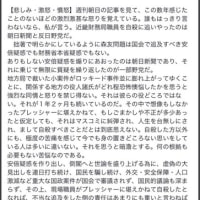
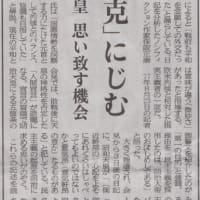
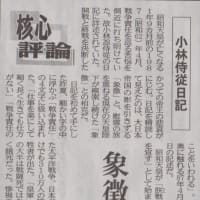


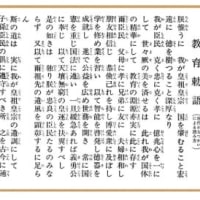



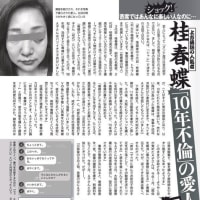
※コメント投稿者のブログIDはブログ作成者のみに通知されます